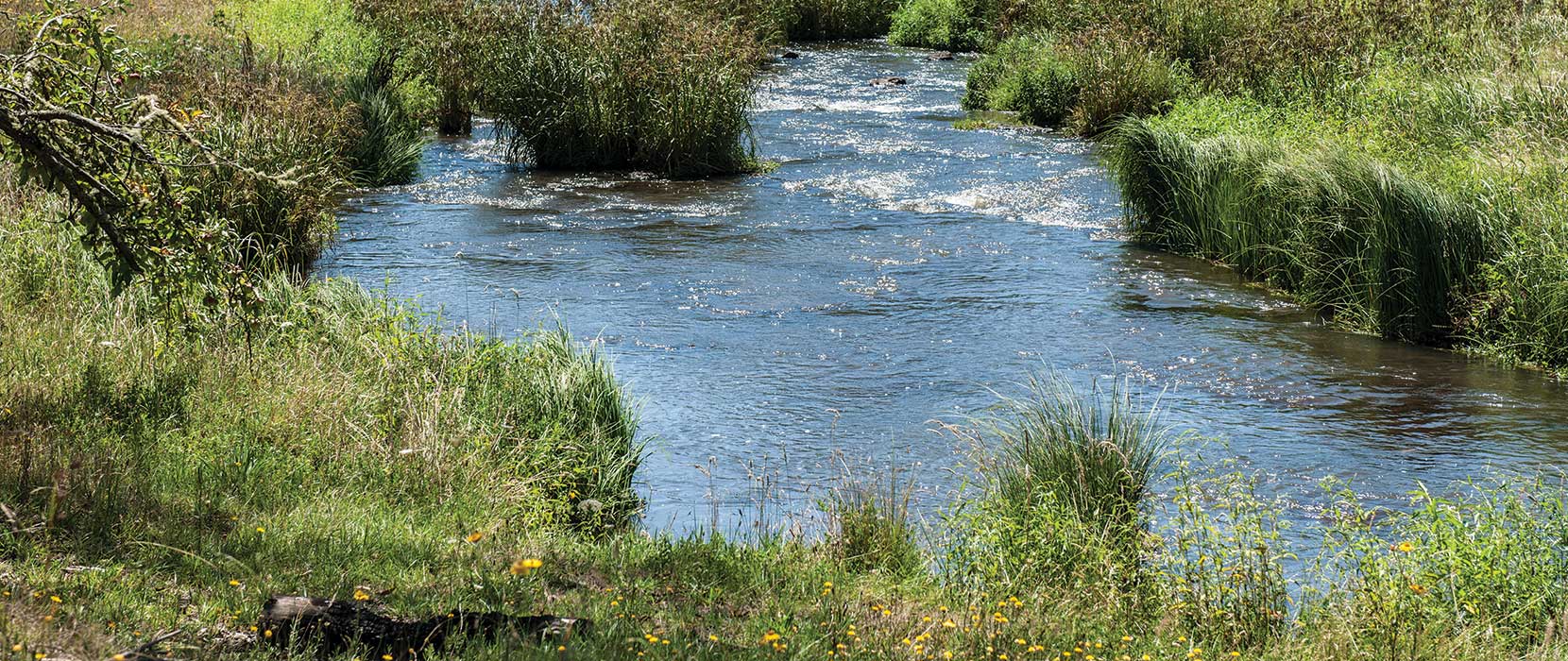Current water governance systems place humans at the centre or ‘above’ nature, with water largely considered a commodity for human exploitation.
Incorporating an Indigenous research framework transformed the questions at the centre of the project.
Dr Jacqueline Williams, School of Law
Dr Lorina Barker, School of Humanities
Dr Patricia Please, School of Law
Current water governance systems place humans at the centre or ‘above’ nature, with water largely considered a commodity for human exploitation.
Our failure to recognise human dependence upon natural resources is reinforced by globalisation, which perpetuates unsustainable models of water management. In this project, three researchers from very different disciplinary and cultural backgrounds explore Traditional Ecological Knowledge Systems, or ‘TEKS’, a term used to describe Indigenous and other forms of traditional knowledge about sustaining natural resources. These researchers are investigating the barriers to incorporating traditional knowledge systems into water governance models, as well as the benefits of empowering and recognizing the importance of this knowledge. To achieve this, each of the researchers has adopted a decolonizing narrative approach that applied an Indigenous research framework to understanding traditional water knowledge.
Incorporating an Indigenous research framework transformed the questions at the centre of the project. Instead of presuming that water is an economically defined commodity, this research asked what is water knowledge, what forms of water knowledge exist and how could they be taken into account. What are the social justice issues contained within water knowledge systems? How can traditional water keepers self-determine within colonized systems of water governance? Most importantly, how can traditional water knowledge be recognised and enabled within the current system to produce sustaining water governance models?
With these questions at the centre of the inquiry, each of the three researchers were able to bring particular cultural and disciplinary approaches to these issues. Dr Lorina Barker is a Wangkumara woman from northwest NSW. Dr Barker emphasises the many examples where Aboriginal Elders are conveying traditional Indigenous water knowledge to government agencies, and the wider public, to ensure the cultural, spiritual, social and emotional wellbeing of people, place and the environment. There are many complex reasons why Elders are sharing these water stories, and why they have chosen multimedia as the vehicle for that transmission. The inclusion of traditional water knowledge in water governance recognises the importance of Indigenous water knowledges. Dr Patricia Please considers the questions at the centre of this project from the perspective of public engagement with, and participation in, natural resource management, using an integrated holistic approach that accommodates the importance of empathy, affect-emotion and eco-psychology. Dr Jacqueline Williams explores environmental stewardship from an enviro-social perspective, as a white Australian rural landholder and as an environmental scientist. She identified globalisation as one of the main barriers to the recognition of traditional water knowledge systems, suggesting it is best understood as another wave of colonization.
This research encompasses cross-cultural and interdisciplinary approaches, offering different insights about the barriers and opportunities presented by TEKS.


